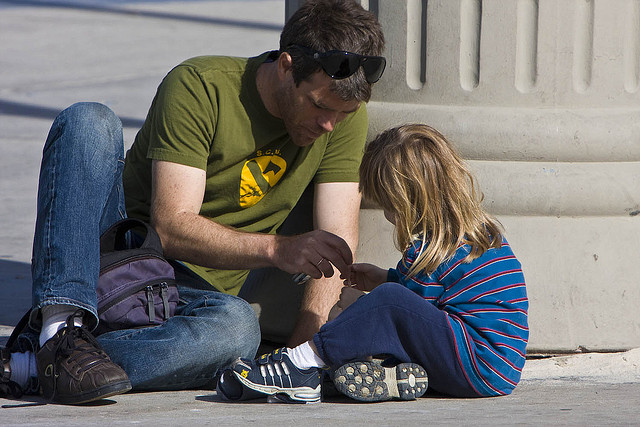
Most parents would never intentionally hurt their children, but unfortunately some do.
Our self-esteem and what other people think of us are sometimes at the opposite ends of the scale. If I evaluate my worth, I take into account the volunteer work I do and how others value me as their friend, relative or acquaintance. Someone speaking negatively about me has no impact on what I think of myself. I am an adult. I can roll with the punches and I think I’m a pretty good person.
Children, on the other hand, rely heavily on the opinion of others to help form their view of themselves or their self-esteem. These ‘others’ include friends, relatives, acquaintances, teachers and other school staff and parents. Another child may speak negatively in a casual manner about them and they can pretty much let it roll off their back as long as it is not considered bullying. When a teacher speaks constructively to this child they may feel disappointment but they may strive to study harder to achieve their well-earned praise. They will generally feel good about themselves.
However, when a parent speaks negatively or harshly to the child their feelings are impacted even though they might not show it and self-esteem often takes a silent blow. The parent’s words will carry more weight than the teachers, relatives or friends combined. If there were a pie chart— parents would have the lion’s share.
Because our children view us as so important and with such authority, it is our responsibility to measure our words carefully before we speak. We often say what we think in the moment rather than what we truly mean. Parents should think of themselves as the PR person for their child’s inner self, being cautious with word and phrase choices, especially when upset or in a hurry.
The next time your child breaks a plate, loses your hammer, makes a bad choice or any number of infractions that kids commit— stop and think! Ask yourself, “What do I want my child to come away with after this experience?” The answer to that question will be your guide in choosing what to say or do.
When parents do slip up – and they will – apologies should be quick and sincere. Parents who apologize must try to avoid using hurtful words at all cost in the future. Parents who continue and think a string of apologies will smooth over hurt feelings are wrong and run the risk of losing credibility with their child.
“Taste your words before you spit them out.” ~Author Unknown
“The way we talk to our children becomes their inner voice.” ~Peggy O’ Mara
“A child with low self-esteem probably has a parent with low self-esteem.” ~Tinker
What do you think about children’s self-esteem and apologies?